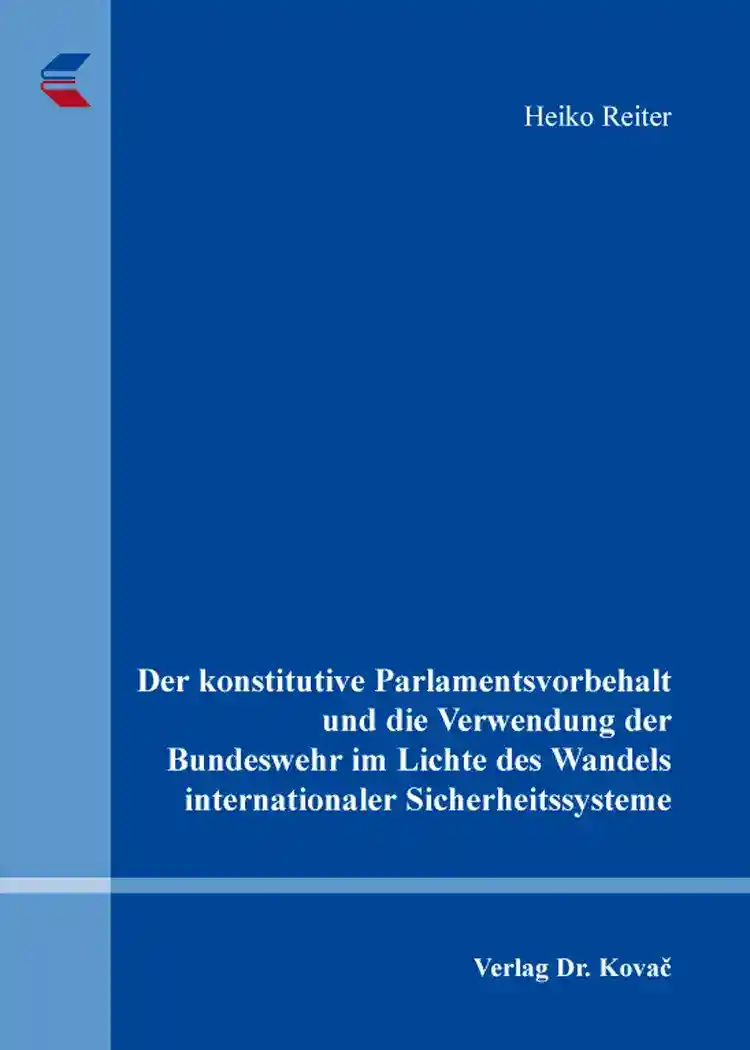Heiko ReiterDer konstitutive Parlamentsvorbehalt und die Verwendung der Bundeswehr im Lichte des Wandels internationaler Sicherheitssysteme
Verfassungsrecht in Forschung und Praxis, volume 118
Hamburg 2015, 206 pages
ISBN 978-3-8300-8258-3 (print) |ISBN 978-3-339-08258-9 (eBook)
About this book deutschenglish
What is Germany’s military actually defending in the Hindukush? This question has been publicly discussed for many years and exemplifies the debate on the use of the German military in the context of international security systems. The present work examines how on-going changes to the international security situation and international security systems affect the interpretation of the public international law statutes, and in particular constitutional provisions, on which Bundeswehr missions are based. In addressing this, the author sketches in the first portion the political circumstances, reaching back to German Reunification in 1989/1990. Subsequently, the public international law framework terms for the uses of the Bundeswehr are described; the author then turns to a depiction of the changes to the international security systems incorporated by the UN, NATO and the EU, proposing a thesis that a shift has occurred from defending territory to protecting interests. In the second part of the work, the author examines constitutional law. First, the court decisions of the Federal Constitutional Court are reviewed, especially those dealing with constitutive parliamentary prerogative. This is followed by general comments on constitutional law limitations for the use of the Bundeswehr. The focus of the work is the subsequent detailed analysis and evaluation of the key concepts of (1) defence, (2) system of collective security, (3) consent requirements in terms of Art. 59 par. 2 of the German Basic Law, (4) parliamentary army and/or parliamentary prerogative, as well as (5) mission concept of constitutive parliamentary prerogative. In the context of critical final comments, the author concludes that public international law and constitutional law legal concepts collide with their interpretative limits in light of the constantly-changing international security situation and the changes to international security systems.Keywords
Bewaffnete StreitkräfteInteressenverteidigungKonstitutiver ParlamentsvorbehaltNATO-VertragParlamentsbeteiligungsgesetzParlamentsheerResponsibility to ProtectSchlüsselkonzepteSicherheitssystemeUN-ChartaVerfassungsrechtVölkerrechtWehrrechtWehrverfassungIhr Werk im Verlag Dr. Kovač

Möchten Sie Ihre wissenschaftliche Arbeit publizieren? Erfahren Sie mehr über unsere günstigen Konditionen und unseren Service für Autorinnen und Autoren.
